#operation security
Text
DP x DC The Crying Crown
So the ring of rage and the crown of fire are sentient
In the episode “Reign Storm” Skulker gives us information on Pariah Dark
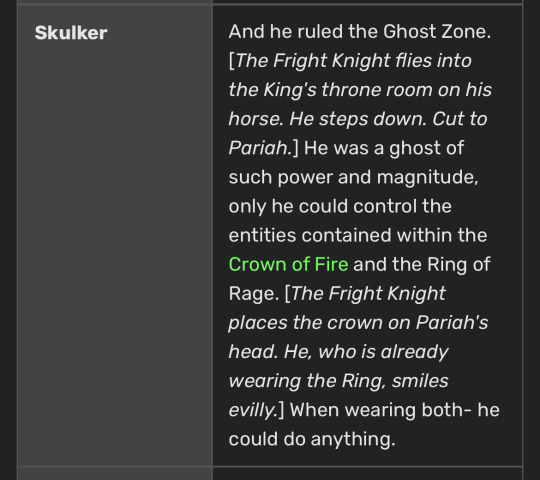
Notice the wording
“Control the entities contained within the Crown of Fire and the Ring of Rage”
There is something contained within them, not just a power boost, but in controlling the beings within the crown and ring Pariah gains power
So this implies the crown and ring each have a will of their own, some kind of consciousness. They are sentient (though perhaps not sapient)
So whatever happened to them?
Well, if we recall the end of Reign Storm, Pariah got locked away with just the ring, and Vlad flew off with the crown of Fire
So we have a corrupt Billionaire with many shady business dealings, with a sentient artifact in his possession that probably isn’t very happy about that fact, especially as Vlad attempts to control the crown
Enter one detective John Jones aka Martian Manhunter aka a gosh darn telepath
Now, there are probably legitimate reasons the police might investigate Vlad, but J’onn is probably going to get sidetracked when his mind connects to an ancient sentient artifact that’s very upset
#danny phantom#dp x dc#dp x dc crossover#dp x dc prompt#dpxdc#writing#writing prompt#martian manhunter#crown of Fire#also might consider what anti ghost defenses do when trying to deity shift through them#they operate under different mechanisms essentially#but are still designed to be phase proof#so would he be able to go through or not?#I think it would drive Vlad crazy if a ‘ghost’ got through his security
258 notes
·
View notes
Text
Fluent Freshman - Part 40
PREV
The Winter Banquet.
Where the Spring Championship announcements happen for Collegiate Exy. A formal event meant to allow the ERC to showcase how their stars weren’t just brutes on the court. Look at how beautiful and handsome they all were. Look at how they danced together. Look at the smiles and laughter and-
Wait.
No.
Put that down.
Who had the great idea to put the Jackals next to the Terrapins? Things have been tense between the teams since the Captain of the Terrapins stole the Captain of the Jackal’s date during the Fall Banquet!
I thought we all agreed that there would never be any more steak knives! What was the point of paying for all the pre-cut tenderloins if we’re just going to give them steak knives?!
Really gotta find an intern to pin this fiasco on.
Oh great the Foxes are leaving! Did we even get a picture of Kevin Day in his suit? Fuck it’s going to be a two intern firing kind of day isn’t it.
Someone get an eye on the Ravens before they try and grab some hapless idiot and sacrifice him to revive Riko Moriyama. If there’s even one more damn tabloid with a blurry photo of ‘Riko Moriyama’ to prove that his death was faked then heads will roll.
Honestly, the biopic that some Edgar Allan Film student is making about him seems pretty interesting. The ERC just wishes people would stop taking pics of the ‘lead actor’ and sending it to tabloids as proof that the King hadn’t died.
Fuck, the Foxes left before we got any decent pictures.
Well just great.
You’d think that after all these years of the Foxes leaving early they’d have learned that getting pictures as they arrive is the most important thing.
Oh thank god it looks like the Trojans are starting to mediate the fight. You can always count on good ol’ Jeremy.
Fuck.
A Raven got too close to Jean Moreau and now Jeremy Knox has punched a Backliner. Great. The Trojans have formed ranks around Moreau but the kid’s just too damn tall. Someone has hit him in the head with an especially saucy meatball, he’s not injured, just confused. The Trojans are acting like it’s a gunshot he just took to the head.
The refreshment table just seemed to collapse in on itself and god wasn’t that just an allegory for this entire damn evening.
Anita Flores sighs as she watches yet another banquet go down in a riot. Honestly, she doesn’t know why they think these will end up differently. She finds herself often missing when she used to coordinate banquets for football teams.
She sighs and thinks about her least favorite interns.
Alex had been getting a bit too cocky lately. He’d make a good sacrifice.
***
(Three hours earlier)
The Palmetto State Foxes were on their way to the Winter Banquet. From what FF understood it was categorically always a 90% chance of a shitshow. Honestly FF was surprised that the percentage was that low.
There was a general tenseness in the air surrounding it that went beyond the Banquet’s propensity to become a fight.
This year the Winter Banquet was going to be held up at the Binghamton Bearcat’s stadium. The nation knew the story from the news and FF knew the story from both that and from the Foxes themselves who were there at the time in bits and pieces.
Captain Neil had been kidnapped from this stadium and then he’d been tortured. FF hadn’t even been on the team when it had happened and he was anxious about Captain Neil going anywhere near the stadium.
“He was just…he was just gone.” Matt had said, “Neil was gone and Kevin said that he was probably dead when Andrew got back with his phone.” He continued as the two of them sat up late in the living room of the dorm one night back in early October.
“I thought Andrew was going to kill me y’know.” Kevin had said bottle in hand as FF tried to help him up the stairs because apparently he would 100% guarantee vomit if he was in the nausea box. “I thought that maybe I deserved it, since I didn’t help Neil. I just let him walk to his death.” He said and despite assurances that he wouldn’t puke FF’s shoes did not make it through that journey unscathed.
“We called…we called everywhere.” Nicky had stared up at the ceiling of his hospital room, “Andrew was adamant that he was still alive even though Kevin kept saying he was dead and that dead was the nicest thing he could hope for. I thought that was a terrible thing to say.” Nicky curled up closer to him.
“I told you, Andrew dragged me like I was nothing to get to Neil. I don’t think he even noticed the guns.” Wymack said to Abby as the two sat on the back porch during Aras’ going away party. “His eyes were on Neil.” he gestures towards where Andrew was watching Captain Neil wrestle with Matt.
“He looked like shit.” Aaron had said unable to stomach a diagram of different degrees of burn in his medical book. “At least he was alive.” He adds.
“A hero.” Andrew’s voice had been what could be considered teasing from Andrew, “Someone who looks like her.” he had said touching Captain Neil’s burn scars as they drove away from the stadium after coming back to pick FF up.
Captain Neil had come to him the day before they were set to drive out, “Take me somewhere no one will find me for an hour.” FF hadn’t quite understood what Captain Neil meant, he never hid anywhere. People just failed to realize where he was.
“Ok.” he says instead of trying to explain because being unnoticed means no one hid codes from him.
The roof of the Library wasn’t that much different from the roof of the Tower, only that it was taller and bigger. Captain Neil had shut his phone off after texting something, likely to Andrew, and then put it into his pocket.
FF settled on the roof, sat with his back against a heating vent to stay warm. Captain Neil settled next to him and they sat in silence. It felt like back at the start of this where Captain Neil and Andrew would come find him and just sit in silence.
It was nice. He had missed-
“They act like the stadium is the thing that kidnapped me.” Captain Neil says.
Oh okay, quiet time is over apparently.
FF doesn’t say anything, figuring that nothing he could say right now would be the right thing and maybe Captain Neil just needs to talk through some stuff.
“That stadium is where I thought I’d have my last good memory.” Captain Neil explains, “I’m not scared of it and yet Andrew’s acting like I’ll die if I’m left alone for more than 2 seconds while we’re there. Every time we go there they all act like the most important thing in the world is that I get on that bus at the end of the night.” Captain Neil explains.
FF does remember how Andrew had grabbed Captain Neil after their October game up in Binghamton. How Captain Neil had complained bitterly but had gone after looking at Andrew.
“He’s dead!” Captain Neil exclaimed and FF couldn’t help but look over at the entrance and hoped no one heard them. “He’s dead! I watched him get shot! He can’t kidnap me again!” Captain Neil continued to yell and FF couldn’t help but worry that they’d be heard below, or worse bother a student trying to study below.
FF reached out and touched Captain Neil’s arm and bright blue eyes turned to him, “We’re on a library. Don’t yell.” FF said and Captain Neil looked at him incredulously.
Then he laughed. He laughed and laughed and FF was worried that he’d gone and broken his Captain.
He suddenly felt bad about his own bout of hysterical laughter a while back.
“Thanks Smith.” Captain Neil had said with a smile.
They had sat up there until it was dark and Andrew had started calling FF’s phone and Captain Neil took the call to say he was coming back.
Now they’re on the bus, dressed nicely, and on their way up to Binghamton’s stadium. Captain Neil and Andrew are hidden in the far back of the bus with Andrew looking far more like a watchdog than anything else the closer they got to their destination.
Captain Neil had seemed largely resigned to this treatment at this point. Eventually they were at the stadium and shown to their seats. They were sat across from the Trojans and it seemed like the rest of the team was quite pleased with that.
“Smith!” Captain Jeremy Knox is smiling at him, “Nice to see you again bud, nice name change too.” he says.
“It’s nice to see you too, Captain Jeremy.” FF says and doesn’t notice how Captain Neil’s head whips around to look at him.
“You two know each other?” Nicky asks looking between the two of them with excitement.
“Of course! We offered Smith a spot at the USC Trojans.” Captain Jeremy says and FF feels his stomach cramp at the memory.
That had been terrifying.
Coach Rheman and Captain Jeremy wanted to sit down to make their offer with his parents. He was still 17 and unable to sign anything legal without their permission. He’d tried to decline and move past them and Captain Jeremy had put the final nail in the coffin at the time for any thought that he could go to college on the power of his apparent Exy capabilities.
“I saw in your file that you have brothers! USC always gives a second look at student applicants who already have siblings in the university. You could go to school with your brothers!” he had smiled brightly like he wasn’t issuing FF one of the most terrifying threats he’d ever heard in his entire life.
He had given the firmest ‘No thank you, I’m not interested in playing Exy in college.’ he could and was running to his Grandma’s to breath into a bag for twenty minutes.
“I see you changed your mind about playing Exy in college.” Captain Jeremy said with the same smile that still feels like a threat.
“Coach Wymack and Captain Dan were convincing.” he says and looks to see if there’s any way he can move further away from Captain Jeremy’s attention.
“Can I ask what convinced you to be a Fox?” Captain Jeremy asks, “I’m always trying to see what support we should be offering. I found out last year that we missed out on Andrew because we didn’t offer spots to Aaron or Nicky. I thought since you had brothers that’d be the thing that got you.” Captain Jeremy leans across the table but stops when he notices the Foxes all tense. “Whoa, what’s up?” he asks.
Jean Moreau sighs from next to Captain Jeremy, “Not everyone wants to go to college with their family, Jeremy.” Jean says, “Did it not cross your mind that he changed his entire name?” he asks with a raised brow.
Jeremy blinks, “Oh,” he looks at FF, “I guess that wasn’t the right thing to offer.” he says leaning back in his chair.
“I guess I should thank you for offering that?” Nicky says wryly before turning to look at FF, “You look better in orange anyways.” he says.
“Thank you Nicky.” FF returns loyally.
The banquet gets started shortly afterwards. Food is served. The bar is opened. People are talking. FF finds himself relaxing the longer the conversations around him go on. Matt is talking with a backliner on the Trojan line named Todd in good cheer. Captain Neil, Kevin, and Jean are all talking about the latest updates with Ichirou in French with the occasional gesture towards FF. Jean Moreau looks at him with a raised eyebrow but gives him a single nod when Captain Neil explains what happened.
Jeremy is chatting with Jack and even Jack was finding it hard to maintain his usual level of rudeness in the face of such unbridled positive energy. Nicky was talking with Katelyn and Alvarez. Aaron was chatting with a fellow med student college athlete who was an offensive dealer.
It was shaping up to be a good night.
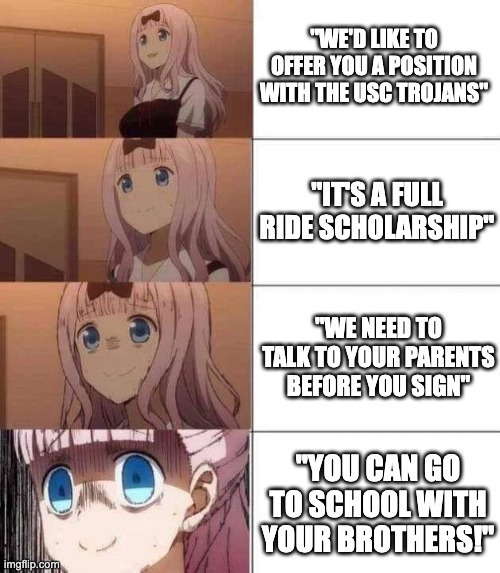
MASTERPOST FOR ALL PARTS OF FLUENT FRESHMAN AU
NEXT
#Fluent Freshman AU#Jeremy Knox essentially threatening FF on accident#With a huge smile#Fucking kills me#Winter Banquet getting into full swing#Ya'll know where it's heading but not all the parts that happen#Foxes are on high alert#No one likes Neil being in Binghamton#There was definitely an all-hands meeting about how Neil is not allowed to go anywhere alone#That if a security guard approaches Neil you treat that security guard like an active threat#Nicky just thinks it's Andrew wanting an excuse to hold his BF's hand all night#Andrew: “Smith you're on covert operations. Keep an eye out for threats.”#FF: “Aye aye Captain.”#Neil: “OH SO NOW HE'S A CAPTAIN TOO? WHAT'S NEXT?!”#Neil is butt hurt about the whole “Captain Jeremy” thing#He could accept it for Dan#But JEREMY?#Neil's gonna need a lot of TLC to get over this betrayal TBFH#In adult news#My closing is next week Friday!#Wooo#I really speedran the whole owning property thing#Thank you bullshit luck#AFTG#AFTG AU#AFTG OC#Andreil#Wow 40 parts on this thing#Still wild#Thanks for joining me on this ride
221 notes
·
View notes
Text
On the Issue of Vanessa's Voice
The Nurse from Help Wanted 2 and Vanessa from Security Breach have the same voice actress so uhhh...
If you're wondering what Glamrock Vanessa sounds like...

#five nights at freddys#glamrock vanessa au#fnaf au#help wanted 2#fnaf help wanted 2#gregory fnaf#gregory security breach#fnaf helpy#helpy#heather masters#the operation was a success#yaaaay
63 notes
·
View notes
Text
I am once again asking people to spend at least five minutes googling classified information and how it works in the United States before writing the most nonsensical things about it into their stories.
31 notes
·
View notes
Text
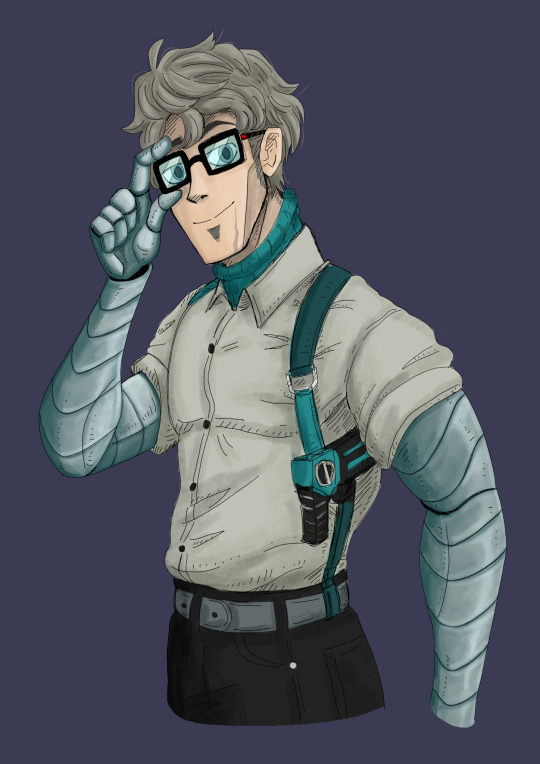
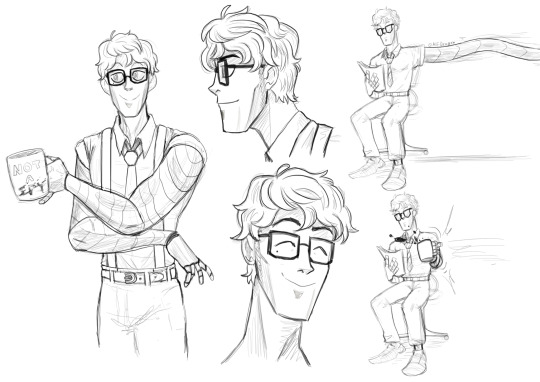
SURPRISE LONGARM!!
Blitzwing aside, Shockwave is one of my other faves~
And since people have been very positively receptive of Ludwig, I wanted to take a crack at a human Longarm/Shockwave.
Now including stretchy metal arms! He’s a perfectly lovely, perfectly normal, 9-5 working man 🤓👍🏻
#transformers#transformers animated#tfa longarm#longarm prime#tfa humanformers#would you trust this man with your social security number?#would you let him operate a car crusher?#still thinking of a name for him but right now I’m leaning towards: Logan
143 notes
·
View notes
Text
first day on my own doing scary stuff again
#this time I'm operating the wheelchair ramp and doing all the wheelchair securing on my own#wish me luck!!!! I'm nervous!!!!!
24 notes
·
View notes
Note
Operator needs a cat. Not a kitten that would tire him out, but rather a 5 year old chill shelter cat that would lay on his knees all the time and just purr while making biscuits when Operator's working.
I saw you sent that you realized he had one (Lily!) but you're so right LMAO. Lily benefits him far more then anyone realizes; she very much grounds the man when he's feeling quite a bit overwhelmed.
36 notes
·
View notes
Text
I have gotten my hopes up that I will be getting engaged on Saturday, and I know that if it doesn't happen (it probably won't!) I'll be so so disappointed. But it's either this Saturday, or like.in a month.
#look we've got the venue and date secured so it's gonna happen soon#but I will most likely have a really invasive operation on my mouth within the next 2 weeks and after that will not be leaving the#house for a while#and I know it's not gonna happen cause it's literally exam week#and he is so busy#and he used to talk to me about how he's nervous about the proposal and that has suddenly stopped#so either he's at the point where he cant tell me anymore or he's put it out of his mind for the time being due to having so many other#things to think about (exams!!!!)#but he invited me over to his place this weekend cause his roommate will be away (who goes away during the exam session??)#and i just. ajnwjwndkwkqlsmenneieiendn#I KNOW I'M JUST GONNA DISAPPOINT MYSELF#and we're going to visit some friends for lunch after that and I don't wanna go sad and disappointed I really don't#I'm trying not to have these expectations but the switch in my brain has been flipped#mine#s
15 notes
·
View notes
Text
Excuse me while I ramble for a little while.
Making a small change to my canon (cause I can do that) that Puppet (security puppet specifically) was based off a drawing made by Charlie herself.
Shortly after Sammy's abduction, during the worst of Henry's depression. Charlie was young when it all happened, but also still old enough to understand the severity of it all. She knew her father liked to make little characters, as he was the one who came up with the characters in the diner, as well as a good portion of her toys. She formulated the idea in her young mind. Her father's always making things for her to make her happy, so, naturally, if she makes something for him, he'll be happy, too, right?
So she gets to work. She spends all night working on her crayon creation; it's the best thing she's done in her 3-4 years of life. The next morning, she proudly presents it to her father.
Henry is touched. For a moment, the clouds part, and everything is all better, but it's only a brief moment. He ruffles Charlie's hair and sends her on her way- after a very long hug of course.
It's not a surprise to him when, mere months after the event, William begins trying to persuade him to reopen the diner. "It'll be good for your mind," his friend reasons.
Henry doesn't really want to, it feels too soon, though he can't deny that William's reasoning has sense. He agrees that the diner should be reopened, but not before he can add a new character to the ensemble.
He truly does treasure Charlie's gift, and to show that gratitude, he creates an animatronic character out of the drawing. Shortly before the diner reopens, he takes her aside to show it to her. The little girl is ecstatic, "daddy loves my gift! He brought it to life!"
He watches with a melancholy smile as Charlie jumps around, taking in every detail.
It's a special gift indeed, he thinks. And it will keep you safe.
#operation fazbear#fnaf#five night's at freddy's#fnaf au#charlie emily#henry emily#fnaf puppet#fnaf security puppet#take my ramblings#I should not be up this late I have class at 8 in the morning
7 notes
·
View notes
Text
Hawks: We’re kind of missing something, guys.
Dabi: Cohesion?
Toga: Teamwork?
Spinner: A general sense of what we’re doing?
Sako: And Tomura isn't here.
Dabi: Oh, and that, yeah.
#incorrect lov#they're competent on their own but it's like. half as organized as it would be with tomura#i want a filler episode like that where tomura takes a vacation and the league has to carry out one of their operations without him#no sako or kurogiri either just to make it funnier#actually tomura wasnt part of the muscular operation right#anyway i just want everything to go horribly wrong but they still manage to pull it off#and come home and tomura's like how did it go :) and they're all like uhhhhhhhhh it went great#and then it's revealed tomura was watching them through the security cameras of whatever mall they were robbing and laughing his ass off#i need lov filler episodes so FUCKING bad#bones if you need ideas for filler episodes i am right here#bnha hawks#takami keigo#dabi#bnha spinner#shuichi iguchi#himiko toga#bnha twice#jin bubaigawara
205 notes
·
View notes
Text
youtube
#youtube#militarytraining#Ground Maneuvers#Saber Strike 24#National Security#War#Exercise#Military#Live Fire.#Action#Training#Combat#Tanks#Infantry#Deployment#Army Training#Soldiers#Defense#Military Operations#Armored#Troops#U.S. Army
5 notes
·
View notes
Text
New operation overgrow designs
I'm still working on the first chapter, but im happy to say the world building is near complete. I just need to uh... *stares at the 10 page google doc of purely world building* ....organize it... UHHHH Y/N DESIGN COMING SOON WOO
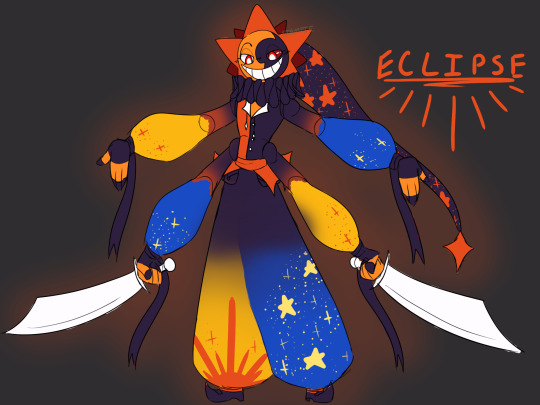

#i was just having fun sketching honestly#i know these designs are nothing super interesting#but i still like them all the same#sometimes simplicity is best#im excited to see where the story goes!!#eclipse#moondrop#sundrop#fnaf moon#fnaf sun#daycare attendant#security breach#dca#dca fandom#dca au#operation overgrow
24 notes
·
View notes
Text

Where to go.. where to go...
Tch, big decisions for Benny.. Big decisions for Benny...

You mentioned an accident in uhh SimCity™ awhile back right?

Could we possibly go see the SimCity™ itself?
[ Benrey would slightly chuckle to himself. ]

SimCity™ ya say?

GREAT IDEA!
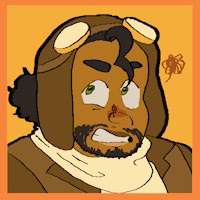
NO. WE ARE NOT-
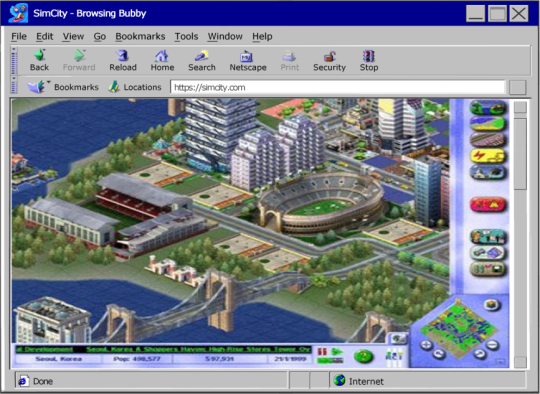
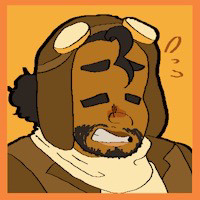
Aaand we’re already there. Just don’t make me look like an idiot in front of the user…
#HKEY|SYSTEM|OPERATOR#HKEY|SECURITY|FIREWALL#HKEY|SOFTWARE|BROWSINGBUDDY#HKU|BENREYLOVER#browsing history#PROGRAMFILES|REALITY_REGISTRY#MRW-034-B
12 notes
·
View notes
Text
"What Should It Look Like?" Part IV: Special Operations Forces (OLD ESSAY)
This essay was originally posted on May 24th, 2023, is my most recent "old" essay which means we are fully up to speed over here on my content!
This essay is the latest entry in the "What Should It Look Like?" series - which I may still have a few to do on but we'll see. In this one, I unleash a rant against special operations forces that I've mostly held in for years and finally let out full force. This is another one that got a very specific type of guy on Twitter annoyed.
(Full essay below the cut).
Oh boy here I go ranting again.
Fair warning, this is a dense one. For real. But that’s because this is one I’ve wanted to cover for a long time and have a lot of thoughts about. A lot.
Yes my guys, gals, and non-binary pals, we’re finally talking about the United States’ Special Operations Forces (SOF), those tacticool, high-speed, low-drag, routinely accused of war crimes special snowflakes that have destroyed the minds of so many middle and high school ages boys that ever owned an Xbox and played a single Call of Duty game after 2007.
I’m not going to waste a lot of time here in the intro because, as I’ve already said, I have a lot of thoughts on SOF both in terms of what they’ve become today and what role they play in the scenario we’ve thought of for this series of essays. Suffice to say up front, I think SOF are useful and necessary in a military context, but they have a myriad of problems of varying kinds. I’m going to outline some of those problems, and things I’d try to do differently in building a force for the mildly better future we envision and then employing them in said future.
First, we’re going to talk about the issue of “bloat” and uncontrolled growth in the SOF community. After that, we’ll talk about SOF being directed to missions that are out of the scope of what they should be doing (and also may just be straight up unwinnable). Finally, I’ll talk about the big elephant in the room, which is the toxic culture that is evident inside of SOF units and the SOF community as a whole. As usual, I’ll try to tie it all together in the conclusion and leave you with some closing thoughts for both today and for a (hopefully) better future.
Without further adieu then, let’s dive right into this!
A bad case of the bloats
I struggled with which of the issues with the SOF community I wanted to address first, because the more I thought about them, the more I realized it was a never ending loop of each of them feeding into one another to keep this disaster factory going. Ultimately, I decided I just had to pick one to start with, and I decided the issue of bloat would be the best point – not just because of how it feeds and is fed by the other issues (and I will call back to this throughout the essay), but because of the effect it then has on the rest of the Joint Force outside of SOF.
Before we get any further, I really want to drive home the scale of the bloat that the SOF community has experience over the past two decades or so in change. According to the IISS Military Balance for 2001, at the start of that year – prior to the terrorist attacks of September 11th and a decade after the collapse of the Soviet Union and the end of the Cold War, the United States Armed Forces consisted of 2,568,300 total personnel (1,367,700 active and another 1,200,600 reserve and National Guard).
Of those 2,568,300 troops, the collective SOF forces of the United States – under the auspices of United States Special Operations Command (USSOCOM or just SOCOM – yes, like the video game), made up 42,920 of those troops across all branches of the military (28,620 active and another 14,300 in the reserves and National Guard – yes, there are National Guard special forces; and they’re based in Utah; be very afraid). I’ll apologize now for throwing a bunch of numbers at you – trust me, I’m not a numbers guy either – but there’s a point to this.
Jumping forward to the present, this year’s Military Balance has the total US Armed Forces pegged at active duty US Armed Forces at 2,177,050 personnel (1,359,600 active – just about 8,000 personnel fewer than it was in 2001, and 817,450 reserve and National Guard – over 395,000 fewer than it was in 2001). This amount is just over 391,000 troops smaller than it was in 2001 with the Cold War and the Persian Gulf War in the rear-view mirror and the Global War on Terror not yet initiated.
However, while the military as a whole has shrunk, the SOF community has grown – and by no small amount. In 2023, SOCOM clocks in with 65,800 total troops (which is larger than a good portion of the other armed forces in the globe). The Military Balance unfortunately stopped breaking down between active and National Guard/reserve forces in SOCOM at some point, so I don’t know what the exact proportions are (you can assume the majority of them are active), but even with that breakdown we can see how much each branch of the military’s special group of very special boys who are special has grown over the past twenty years. Compared to 25,900 total active and National Guard/reserve troops in 2001, Army SOF now have 35,000 – about 9,000 more; Navy SOF have almost doubled, going from 5,400 active and reserve in 2001 to 10,500 today; Air Force SOF have grown by over 5,000 troops, going from 11,620 in 2001 to 16,800 today; and finally, the Marines – who didn’t even technically have a SOF component in 2001, now have 3,500 Marine Special Operations Command (MARSOC) troops at their disposal.
So, by the numbers, while the military has shrunk overall since its GWOT era peak, and now that the active force is closer to the size it was when the GWOT started – and the reserve and National Guard even smaller – SOF forces have grown larger and remain larger.
This growth hasn’t been limited to personnel either. The SOF slice of the budget pie has also increased dramatically over the course of the GWOT. In 2001, prior to the beginning of the GWOT and prior to the invasion of Afghanistan and Iraq, the budget for SOCOM was $2.3 billion USD. By about twenty years later, in 2020, that budget had ballooned to $13.7 billion USD – an almost six fold increase in funding. But again, its not just about the number itself, but the percentage. In 2001, the US defense budget was just shy of $332 billion USD, making SOCOM’s budget about .07% of the entire defense budget. By 2020, the defense budget had risen to $778.4 billion – having risen to new heights, fallen, and then rising again in the late 2010s going into the 2020s to even greater heights. SOCOM’s budget had increased to be close to 1.8% of the entire defense budget – and increase of well over a full percentage point.
Now, I don’t want you to get it twisted and think me saying the military as a whole not being bloated and enormous with both people and money is a good thing. I think it was right for the military to shrink back down as we backed away from things we shouldn’t have even been doing to begin with. The problem now is that while the military has shrunk, SOF hasn’t shrunk with them after the growth they experienced during the GWOT. Proportionally, they’re taking up way more billets (and funding) than they were at the start of the GWOT, prior to 9/11.
But you might ask, “ok War Takes, but why does this matter?” That’s not a stupid question to ask for those with only passing familiarity with the military. It matters because SOF is not only not as relevant to the threats that the United States and others primarily face, but at the same time are taking up resources that could be directed to forces and capabilities that are better suited to deter and if necessary combat those threats. This is especially true as long as they remain optimized for and stuck in the mindset of low intensity conflict, COIN, and CT being their lodestars (as I will get to in more depth in the next section).
SOF are what the military wanted more of when the main thing it was worried about – to the detriment of almost all other issues – was running around in the “Sandbox” for long periods of time, humping through the hills and doing Zero Dark Thirty shit while wearing far too many pouches and overpriced sunglasses – and again, I cannot stress this enough – they were being central to a mission that I don’t think we should have been doing in the first place and was a massive waste of time, money, lives, with consequences we will be grappling with forever. Today – and in our theoretical scenario – the primary threat is from large, peer and near-peer adversaries with significant conventional military forces.
Again, while SOF still have a role to play in conflicts against these kinds of adversaries, the bigger and more consequential role is going to be played by other forces. Every troop, dollar, moment of attention, and ounce of effort that is applied to SOF over what it should be, is one one that could (and should) be applied to more effective areas. This includes not only combat arms such as air-and-missile defenses, long-range artillery – including both tube and missile, maneuver forces like infantry and armor, and etc., but also the capacity needed for the critical work of the rear echelon in logistics, intelligence, surveillance, and reconnaissance, transportation, and more. It doesn’t help that a by-product of SOF’s rampant expansion over the past two decades is a great deal of redundancy and overlap between missions as their unique capabilities fade away and they all basically turn into pale imitations of one another running around in the Middle East spitting dip and comparing beards. SOF still have a role to play today and in the future – just as they did in the past – but that role is different and I would argue doesn’t necessitate the numbers they still maintain. At the same time, they remain largely stove-piped off from one another and in competition with one another (which can be made even worse by toxic culture, which I will get to in the third section).
We don’t need theoretical cases to understand the effects that a bloated SOF force can have on the rest of the Joint Force, a we’ve had them from watching it pivot from counter-terrorism and counter-insurgency to preparing for the potential of great power conflict. Numerous capabilities were divested of during the GWOT in the interest of being able to continue feeding meat into the grinder in Afghanistan, Iraq, and elsewhere. After 2005, the Army had only two active-duty short-range air defense (SHORAD) battalions on hand, with the rest being in the National Guard; the Army not only didn’t keep pace with the development in air and missile threats growing throughout the world, but then had to work rapidly to reconstitute its SHORAD capabilities following the initial Russian invasion of Ukraine in 2014. Likewise, the Army also divested itself of reconnaissance helicopters during this period after several failed attempts at replacing the aging OH-58 Kiowa Warrior, believing the job could be done by a mix of drones and AH-64D Apache Longbows (spoiler alert: they were wrong, and now they’re having to spend time, money, and effort, on belatedly finding an OH-58 replacement).
Now, admittedly, it is unfair to put these examples squarely at the feet of SOF and only SOF. SOF just happens to be the most obvious one to blame in this case – out of many who share blame – for the questionable allocation of resources that resulted from poor decisions that were made in the interest of unwinnable wars that we shouldn’t have embarked upon to begin with. SOF, by virtue of its bloat – or lack thereof – is the ideal example of how overcompensating in one area can hurts others, and how those poor choices can come back to haunt you and cost you more blood, sweat, and tears later. That is something we’ll need to keep in mind for our own scenario and hypothetical force.
At the end of the day, SOF, by premise, are meant to be elite. There’s not meant to be many of them, because they’re selected to be the best of the best – not only physically, but mentally, intellectually, and so on. So, I posit to you, in that case: if that’s supposed to be so, why are there so fucking many of them? I mean sure, they’re still a small fraction of the entire joint force, but I can hardly look at 65,000 people and think that each and every one of them are a special snowflake. I see someone on Twitter with 65,000 followers, I don’t think that each and every one of those followers is a fucking savant. That was neither here nor there, I admit, but just something I wanted to get off my chest before we wrapped up talking about bloat (strap yourself in because there’s more rants there that one came from).
“Hey, what’s my mission again?”
Another question you may be asking yourself at this point is, “War Takes, why did SOF get so big to begin with?” Well, the short answer is: “9/11.” The long answer is still “9/11” but with more detail. However, 9/11 and the GWOT didn’t just make SOF grow to its current bloated size, but it also twisted the mission of SOF away from its original purpose (and the purpose it would be best suited for in our scenario) – which was both fed by and fed into the bloat I just described (like I said, all this stuff has been working in one big feedback loop or series of loops).
Once again we’ll need to start from basics because before I can talk about SOF getting away from what it was designed to do, we need to talk about what that even was.
US SOF can point to a number of various ad hoc units through military history as being part of their lineage, such as various units and organizations from World War II like the Office of Strategic Services, the joint US-Canadian First Special Service Force, US Navy Underwater Demolition Teams, and more. But as the units we know today like the Green Berets and the Navy SEALs were officially founded in the 1950s and 1960s against the backdrop of the Cold War, their primary purpose from the beginning was to engage in unconventional warfare (UW).
Much has been written on UW – some of it good, some of it bad; some of it about right, some of it very wrong. By the Department of Defense’s own definition, UW is “activities conducted to enable a resistance movement or insurgency to coerce, disrupt or overthrow a government or occupying power by operating through or with an underground, auxiliary, and guerrilla force in a denied area.” More simply put: UW is support to guerrillas, insurgents, or resistance fighters (however you prefer to style them). Those fighters are meant to be the core focus of UW, according to US. Army Special Operations Command’s own UW Pocket Guide from 2016. With that in mind, the platonic ideal of UW is a covert campaign to enable local peoples under hostile occupation or a tyrannical regime to have the means to fight back against that occupier or tyrant and free themselves. This very concept is reflected in the Green Beret’s Latin motto: De oppresso liber (“to free from oppression” or “to liberate the oppressed.”)
For those of you who are students of history and are familiar with some of the regimes supported by – or governments toppled by – the United States over the course of the Cold War, I’m sure you’re making a face right now after having read that last paragraph. Completely understandable. I’m asking you to bear with me some, because I think this concept of UW is one of those ones that isn’t necessarily flawed in its own right but has been twisted and misused or just paid lip service to or just ignored. Like so many things I study in this field – like the very concept of the military itself – while coming from a Left perspective and considering concepts like UW and others, I often think of the apocryphal quote attributed to Gandhi when he was asked what he thought of ‘Western Civilization’ – the answer being: “I think it would be a good idea.”
Indeed, early US SOF themselves immediately strayed from their supposed doctrinal mission with the advent of the Vietnam War in the 1960s. The use of SOF in Vietnam would largely be characterized by engaging in counter-insurgency (COIN) activity, rather than actual UW. There was an attempt made early on, at least, to stick to doctrine. One of the earliest missions of the Navy SEALs in Vietnam were attempting to undertake true UW in North Vietnam, working to train locals to rise up against the government in Hanoi (this, of course, failed – and we proceeded to learn nothing from it, nor think hard on maybe whether those whole ‘Vietnam’ thing was worth the effort if it was that hard to recruit people to fight against the North Vietnamese government). Use of SOF in Vietnam quickly descended into direct-action missions attempting to take out specific targets such as arms caches, senior leadership of the Vietcong, enemy bases or outposts, and etc. I’m sure these all things that I’m sure won’t sound familiar at all to any veteran of Iraq or Afghanistan – and consequently, it may surprise any of them to realize that we did not, in fact, win the Vietnam War.
SOF very early on fell into the COIN trap. As I’ve elaborated on at length before, I see COIN as losing game over 90% of the time. Fighting an insurgency is a recipe for either defeat, or eternal war with no end – never victory. When their initial attempts at UW in Vietnam failed, the US military seemed to fall back on the old standby of just trying to kill its way out of a problem. SOF were not really acting as they were supposed to, but instead were largely just doing covert, highly specialized versions of the missions that a conventional force would do: close with and destroy the enemy. Now, that’s one thing against a conventional force. I should make it clear that some of these direct action missions – as well as other missions like intelligence gathering and recon, that were also undertaken by SOF in Vietnam – are perfectly valid missions for SOF in the UW context. But, in the grand scheme of things with COIN – where you’re already essentially fighting a losing war, it’s just pissing in the wind. That may win you battles in COIN, but when you’re fighting “the birthrate of a nation” (as journalist David Halberstam put it in regards to Vietnam), it will never win you the war.
With the American withdrawal from Vietnam in the 1970s and the eventual unification of the country under the North, the US military – and the SOF community – decided collectively to put that whole ugly mess behind them and go back to what they had been doing beforehand: preparing for the possibility of fighting World War III in Central Europe (or barring that, a smaller, regional conventional conflict, somewhere else in the world). This meant a return to form for US SOF in the 1970s and 80s. A prime example of this is the US Army’s 10th Special Forces Group. In the event of war in Europe, the group’s primary mission would have been to organize partisan and resistance activity either in territory occupied by advancing Warsaw Pact forces, or within the territories of Warsaw Pact nations themselves, and conduct “stay-behind” direct action against occupying forces as they pushed into NATO territory. If this had all come to pass (and assuming the war didn’t go nuclear, which was not guaranteed per say, but still way more likely than you want it to be), it would have been a UW mission in the truest sense. This was also when counter-terrorism (CT) started to become a mission-set, with the rise of political terrorism of various stripes in the 1970s. But at this point, terrorism was still a niche issue that necessitated a niche response, and not something that the entirety of SOF was notional geared towards, being left to specialized CT units like the Army’s secretive 1st Special Forces Operational Detachment–Delta (AKA: Delta Force) and the now infamous Navy SEAL Team Six (now known as the Naval Special Warfare Development Group or DEVGRU).
That’s not to say there weren’t some backsliding to old, bad habits. SOF relapsed back into its old Vietnam way of doing things – and gave us a glimpse of the future – under the Reagan administration when the Green Berets were deployed to El Salvador while it was in the midst of its civil war. While there, SOF once again where in the business of anti-communist COIN, and in doing so helped to facilitate right-wing government death squads that visited horrific carnage and slaughter on El Salvador’s citizens – including the infamous El Mozote massacre, in which the US-backed Salvadorian Army killed almost 1,000 civilians in and around the village of El Mozote, and which the US government then shamelessly lied through its teeth about. More than 75,000 Salvadorians were killed over twelve years of civil war, most of them by the military. Thirty years later, the country isn’t much better, off, sliding back into authoritarian rule under its feckless and petty tech-bro President and probable future dictator Nayib Bukele. As for the Green Berets and other US advisors that were there, these atrocities were so bad, that not the official publication of everyone’s favorite right-wing coffee company – Black Rifle Coffee – can bring itself to gloss over the fact that it all actually happened under US watch and can’t disguise feeling vaguely uncomfortable about it (though their cop out answer is that the advisors “hands were tied” – you know, you guys didn’t have to be there right?).
Ironically, the same war that would see SOF get back into its true wheelhouse would also be the one that spark the beginning of SOF’s second and more drastic straying away from its core purpose. That of course, was the War in Afghanistan and the GWOT in general, which actually started with a true UW mission. As popularized by the film “Twelve Strong”, the beginning of the US military involvement in Afghanistan was the deployment of Green Berets – alongside CIA operatives – into Afghanistan in 2001 to support the Northern Alliance and other Afghan resistance fighters in their fight against the Taliban government. In this sense, it may be the one real success story of the entire Afghan War. It’s easy to forget that – unlike in Iraq – US conventional forces did not do the brunt of the initial fighting on the ground when the war first started. When Kabul fell (the 2001 version not the 2021 remix), it fell to Northern Alliance fighters (fighting with Green Berets). In many ways, this initial success could be seen as the post-Cold War high point for the Green Berets in undertaking the traditional SOF mission of UW, a high that hasn’t been reached again since.
If you know me and have read my work by now, you know I have decidedly mixed feelings on the legacy of the War in Afghanistan. I ultimately think we shouldn’t have been there (and in fact, didn’t have to be there, as the Taliban were prepared to hand over Bin Laden, our main reason for going in). But if we had to go in, it would have better to have left on a high note after this point (and after it became obvious Bin Laden was no longer there) and then let Afghanistan figure out its own affairs internally. To put it more simply: we should have left as soon as the UW mission was accomplished and the circumstances changed. The Taliban was – and still is – an objectively evil and terrible government and supporting forces to overthrow was a moral move in my book. But what would proceed to happen in Afghanistan – and soon, in Iraq – over the next twenty years would very quickly taint anything moral and just that we had initially accomplished. It would also very quickly and drastically stray from the standard UW mission for SOF and lead us to the issues we now have.
As mission creep quickly set in with Afghanistan and an anti-terrorism focused UW mission quickly grew and morphed into occupation and state building, the mission of SOF quickly got away from UW as, well, there wasn’t a UW conflict to fight. We had become the occupiers that the populace very quickly got sick of within a few years and wanted to get rid of. Like wise, as the GWOT continued to ramp up from 2001 on, hunting down terrorists and attempting to dismantle terrorist groups and cells also became the primary concern of the military and of SOF, with CT and COIN melding into one unholy combination where they were basically the same thing to the military.
Once again confronted with COIN and unable to accept my thesis that it is – most of the time – unwinnable, SOF fell back on the same reaction as they did in Vietnam: trying to kill the problem away. SOF were once again essentially doing the same tasks infantry would do, only more special, more sneaky, with better toys, and etc. No matter how you dress it up though, they were doing the same job as any other grunt stuck in a pointless COIN war: killing insurgents with the hope eventually there will be no more; destroying their weapons caches with the hope they’ll stop getting new ones; destroying their outposts while hoping they wont’ just set up a new one a few miles away; etc. When that didn’t win the war immediately, the reaction was often just to throw even more SOF at the problem – leading to the bloat mentioned before. In all fairness, not all of this was SOF’s fault – when you’re a command or policymaker and have these really cool looking hammer that everyone thinks is great and special, you’ll want to smash every nail you can think of with it. This constant operational tempo, in addition to putting SOF up on a pedestal as the most special boys in the COIN fight, and with other factors, would also contribute to developing a rancid internal culture with horrific results both for those SOF interacted with and for its own members (which I will be addressing in the next section).
I could spend a long time going on about the use of SOF in Afghanistan – as I always say: “that could be an article in and of itself.” But there’s other things I want to cover, so what I want to talk about now is the cautionary tale of getting sucked into circumstances like that and pushing SOF into missions they shouldn’t be doing (or that no one should really be doing). This is especially relevant as the US military is now working to reorient its SOF back towards the missions they were founded to do in the first place, as great power competition increases and the possibility of war with a peer or near peer adversary becomes something that is actually plausible. Because of those twenty years of baggage, it’s not an easy job. After twenty years of GWOT, SOF operators are literally struggling to understand or feel comfortable performing the very mission that was their original justification and purpose and pining for the door-kicking they’ve been doing the past twenty years, feeling like that if they aren’t kicking down a door or clearing a room every few hours they aren’t doing their jobs right. God only knows how long it will take them to get over this – if they’re even capable of doing so in their current form (I would argue they can’t and would go further but I’ll save that for the conclusion). But don’t feel too sympathetic to a lot of them, however, because we’re going to use those institutional issues as a segway into the third main pillar of the issues of modern US SOF – which is their toxic culture and the depths to which it goes.
The Men Who Just Really Love Doing Crimes.
I should clarify from the start of this section, that I am well aware that US SOF have always had issues with culture and professionalism. One need only look at some of the stories from the Vietnam War to realize that SOF has long had issues. But even then, I would argue those were not as widespread, deep seated, and batshit insane as what we have seen and are still seeing in the SOF community in terms of legal, ethical, and moral violations after twenty years of COIN and CT as part of the GWOT in the Middle East and around the globe.
All of this goes hand-in-hand with the bloat SOF experience after the start of the GWOT. As discussed earlier, in the effort to show progress in the GWOT, SOF became the go-to weapon of choice for the US government in tracking down and capturing or killing high-value terrorist targets. They increasingly became the most lionized, hyped up, and obsessed over part of the US military in an era where the average troop was already put up on a pedestal, seen as the solution to any possible problem a policymaker may encounter in national security. At the same time, as the US was pulled deeper into the quagmire of Afghanistan and Iraq and key terrorist leaders like Bin Laden remained elusive, pressure mounted to show results in all of the various “forever wars” America had found itself entangled in.
All these factors combined – and more – no doubt went to the heads of numerous SOF operators and leeched throughout the community. This was seen especially in Afghanistan, where by the 2010s US SOF had developed a reputation for a “shoot first, ask later” attitude towards their mission – at the expense of Afghan civilian lives. But this attitude went beyond simply having an itchy trigger finger, to allegations of outright unlawful killings (i.e. murder) and torture. Having been put on a pedestal and told how important they were, results being expected of them, and being told that they were doing God’s work, SOF seemed to take an attitude that the ends justified the means and that they were right in going to extreme ends outside of the Law of Armed Conflict (LOAC) to accomplish their mission. According to one SOF expose by Rolling Stone, a Green Beret writing to the author from federal prison (where he was incarcerated for smuggling 50 kilos of coke into Florida onboard a military aircraft), as long as the mission they were assigned was accomplished and everything was kept hush hush, SOF seemed to have free reign to go to whatever lengths necessary in the course of their duties.
This mindset was no doubt fueled by a sense of impunity, seeing that US SOF have only seldom faced any consequences for allegations of abuses and war crimes. In the rare occasions that investigations have been mounted or charges have been filed by the military, its even rarer that anyone actually is convicted or faces consequences for their actions. An extensive investigation of the ethics and culture of US SOF that was undertaken in 2020 found “no systemic ethics problems.” When Navy SEAL Eddie Gallagher was put on trial for murdering a captured ISIS fighter, he was acquitted; and after being convicted of a lesser crime of posing with a dead body in violation of the laws of armed conflict, he was pardoned by then-President Donald Trump. In the few cases where punishments are doled out and actually stick, they’re usually relatively minor and done extraordinarily quietly, with the military and the government not wanting to draw any extra attention to the matter. In other cases, the government and the military have straight-up attempted to cover up any acts of wrongdoing. The standard that has been set for SOF over the past twenty years of Forever War is that you’ll likely never be punished for egregious acts, and if you are punished it’ll probably be a slap on the wrist at the most.
The impunity doesn’t just end with acts against civilians and enemy combatants in foreign countries, however. SOF have also developed a culture of violence and heavy handedness against other service members. The past two decades of GWOT are littered with stories of other US service members being sexually assaulted, hazed, and murdered, with the accused or suspected perpetrators being SOF operators – the previously linked article from Rolling Stone just barely scratches the surface of some of these instances on just one post, Fort Bragg (home of Joint Special Operations Command). This violence isn’t limited to being against those outside the SOF community, but occurs within it as well. A famous recent case is the murder of a Green Beret while deployed to Africa, having been killed by Navy SEALs and MARSOC operators during a hazing gone wrong (oh by the way the Navy SEAL sentenced for involuntary manslaughter in that case got his conviction thrown out). In some cases, SOF operators just decide to randomly visit acts of violence on people they don’t even know. The culture of impunity and superiority has developed to the point that its not just that SOF think they’re better than the rest of the military, but that the rest of the military is either an obstacle or a threat that must be dealt with – especially when their privileges and impunity are threatened by them. Despite their notional image as the best of the best, defending America’s values and interests, they seem to have little qualms about harming other Americans when push comes to shove. Even when they’re not murdering and torturing, SOF’s culture of impunity has led them to a point where they can’t stop committing crimes in general. Whether its smuggling drugs or embezzling official funds, SOF operators have been socialized to think they are entitled to it all.
In many ways, the culture of SOF operators has become akin to that of modern law enforcement in America – in that they act more like a cult or an organized crime group or gang (or all of the above) rather than as a professional military unit with good order and discipline. Strict group-think is enforced, with new ideas that break the mold or challenge the status quo are quickly shot down and those who suggested them are ostracized or punished. An “us versus them” mentality is imposed where those not in the cult or the gang are at best disdained or at worst outright hated or targeted. When the cult is under threat, all its members are expected to close ranks to defend it and any members who may be under attack – and God help you if you speak out. And even if you aren’t party to whatever transgressions that have been visited on someone else by the gang, and you largely go about your business trying to do no harm, you’re still part of the problem simply by not speaking out and doing anything about or taking part in a code of silence to cover for other’s wrongdoings. (By the way, this is not to say that these problems don’t exist anywhere else in the US military, but that they are particularity potent in the SOF community. You could really envision the SOF community as being a concentrate – if you will – of all the problems the military as a whole experiences, heightened to their logical extreme).
How do you even begin to tackle this problem? Well, I think as things stand now you can’t. Part of this is there being too much damage to SOF as it exists now to “save” it (and I will talk about this momentarily in the conclusion, like I said earlier), but also needs other issues to be fixed. You need stronger and more consistent oversight of the military in general and SOF in particular from elected officials who are actually going to dig deep, ask probing questions, and demand results – and will need to have a strong moral compass on the issues at hand. You’ll need a top brass in the military that will also have zero tolerance for such behavior and other shitty behavior in general, won’t be afraid of the military getting a black eye or bad press for calling attention to bad behavior, and will rigorously act to deal with bad behavior and crimes of various kinds and dole out actual punishments. Finally, you’ll need a military justice system that actually delivers – well, justice, for the accused and isn’t biased or rigged to produce certain results or simply to protect the interests and appearance of the military. I just mentioned three things that could all be essays in their own right (and likely will be at some point if I can ever get around to them – I’m very tired ok), so clearly this is an issue that goes beyond just SOF and requires sea changes in how our country works, not just how our military or SOF works (something I have pointed out as being necessary in the past). If SOF in our hypothetical better future and scenario are to function without descending back into a toxic culture of murder and cruelty, than these issues will all need to be fixed alongside one another going forward.
De Oppresso Liber (but for real this time)
Ok, so, this is the part where I remember that I’m supposed to be writing about how I would do things differently in this hypothetical future and scenario we’ve crafted for this series. But before I get into that, I want to speak about the here and now – knowing that what I say here and now will make little difference but I want to get it off my chest anyway.
As things stand now, I think that SOF as currently constituted in the US military are essentially un-reformable (and this is not a new opinion of mine). I think the rot has gone on for too long and goes too deep for it to be salvaged. This – again – is similar to my views on law enforcement; I am a police abolitionist in that I think some form of law enforcement or public safety needs to exist in society, but that I think the current system is beyond fixing and needs to be knocked down and started fresh from a completely blank slate with new ideas and new people in order to work. In that sense, I am a SOF-abolitionist in that while I think SOF should exist in the military – both as it exists now and as I’d like it to exist – the slate has to be wiped clean and it has to be started over fresh and new with new people and concepts and rules and oversight.
But ok, if we did wipe that slate clean and started over, how would we want them to be? As I said earlier, a lot of changes need to happen alongside one another – both in the military and in our society. But if we’re assuming the political changes we’d like to see have already happened in the United States and we’re focused more on the military problem now, the answers to the main problems I’ve outlined are self-evident (to an extent) in the problems themselves.
First, we need to have discussions need to be had about how many SOF is enough, and how much funding is really needed, without just letting the community bloat to an extreme size and throwing money at it with no accountability. There also need to be questions asked about how many different types of units we need – does every single branch of the military need to have its own unique SOF unit? My inclination is to say “no” and there would need to be studies done on what types of units we really do need to avoid not only a redo of bloat, but to avoid redundancy and overlap. If a new SOF unit needs to be justified, it needs to have a truly unique argument as to why it uniquely needs to exist. If there’s any of the things I’m listing I think could actually happen under the current system, its at least this one – as there seems to be conversations going in the halls of power regarding potential significant cuts to SOF as I finish writing this essay. So, there’s that I guess (though I imagine this will quickly turn into a political culture war issue in Congress and elsewhere with a revolving door of retired generals making their way to hearings to defend their special snowflake boys to Greg Steube and a similar coterie of very big dumb Republican guys, so don’t hold your breath).
Second, the missions SOF are assigned need to be ones that are actually militarily relevant and useful to the grand strategy we’re adhering to (and also are actually militarily achievable – unlike COIN and CT). Over all of this, thirdly, the SOF community also needs to be subject to oversight with actual teeth to it and those who violate rules, procedures, and established laws (both US military law and the LOAC), need to held accountable for their actions in a meaningful way. This is by no means an all-inclusive list, but just the major issues that come to mind reflecting on everything I’ve dumped on you for the past then pages or so in change.
While all of these issues are important, as a defense analysts I am most interested in the missions angle – not simply because I want to make sure its addressed how SOF fit in to the scenario we’ve established before, but because it also ties in to the other issues in that circular feedback loop I described from the onset. In our scenario of coming to the aid of an ally that is under attack by a strong conventional adversary and is being invaded, what would SOF be doing?
In our scenario, SOF would likely be the first troops of ours on the ground to assist our ally, before any substantial conventional ground forces are able to arrive in strength. To that end, their initial goal would be the same as any and naval firepower that is being directed to the region as the invasion is underway: to slow down and hopefully stall the enemy advance until those aforementioned conventional ground forces can arrive and concentrate and counter-attack. This would be in close conjunction with allied forces on the ground – likely including their own SOF, if they have any. Much like US SOF planned to do in Central Europe if the balloon went up during the Cold War, they’d blow bridges, collapse tunnels, and undertake harassing actions to slow the enemy down as their forces moved forward onto allied soil.
While our forces prepared for a counter-offensive to liberate occupied allied territory, that’s when SOF would really go to work, undertaking the mission that was always meant to be their primary responsibility: unconventional warfare. SOF would infiltrate behind enemy lines and work to establish an insurgency against the occupying forces – or support ones that have already cropped up. SOF would train and advise these forces, directing them on where and how to strike in order to make the biggest impact on the occupation, fighting alongside them in the process. It would be a return to form for SOF, fighting in support of insurgents fighting for their rights and freedoms, rather than engaging in a COIN campaign (and forcing the enemy to engage in such an ultimately hopeless endeavor themselves). The goal here is to continue weakening the enemy, drawing away forces and effort to fight the insurgents and lowering enemy morale and effectiveness, while making the coming conventional counter-offensive more effective and faster from having worn down and worn out the enemy internally. Once conventional forces press forward and link up with the insurgents, they may be able to link up with those conventional forces to press on and assist them – following Mao’s own theories on insurgency and guerrilla warfare, with the guerrillas gradually growing into the final phase of conventional warfare.
Additionally, aside from shooting people or even training other people to shoot people, SOF would play a critical role as eyes and ears quietly observing enemy movements and activities. In an age of satellites, drones, and other technical means of intelligence gathering, you often still can’t beat a soldier on the ground to give you an eyes-on account of what’s going on and to catch nuance that a long-range camera just can’t get you. To get back to the shooting while still staying in the intel gathering mold, SOF could also embark on moire aggressive intelligence gathering or snatching operations to get key info that not even satellites or drones can get eyes on, further demonstrating their importance in a highly technical age of warfare.
All in all, SOF would play an important role in the scenario we’re thinking of. That’s something that anyone on the Left that still thinks that armed conflict is sometimes sadly necessary will have to get comfortable with. This is a big assumption on my part, based mostly on vibes and what I see in discussions online, but I get the impression that among a Left that already has a dim view of the military, the dimmest and darkest possible view is that of SOF and its operators. Again, given the transgressions I outlined earlier in this essay, I don’t’ think that’s a view without reason by any means. But that’s why I wanted to talk about all the systemic issues with SOF to show its just one thing that’s led them to what they currently are, and to demonstrate just how far they’ve strayed from the purpose they were meant to have originally. If reoriented on that original purpose, and utilized in service of ideology and motives that were not inherently imperialistic, SOF do have an important role to play. This is especially true if in this better world we imagine that we still wish to support those seeking their own liberation (I should surely hope so or I wouldn’t even bother writing this shit), without getting drawn into the moral and military deathtrap of regime change and occupation and COIN. Deploying SOF to train, advise, and equip insurgents fighting for better lives in their homeland is the way to avoid stumbling into our own versions of Iraq and Afghanistan. Basically, we always want to make sure that the only role we play in any insurgent, is being on the side of the insurgents than as the COIN practitioners (assuming the insurgents aren’t pieces of shit and genuinely want a better future for their people and aren’t just batshit insane).
On that note, I think I’ve said just about all I can think to say on this subject for now and my brain is starting to run on empty. Out of all the essays in the series, I think that this one was the one I was both most excited for and the most dreading to write for a long time because of how intellectually and emotionally dense a subject it is. In all honesty, for how much I’m glad I’ve broached this subject, I’m happy to put this one in my rear-view mirror and move on to greener pastures now that I’ve said my piece. As with everything I write, I hope it at least promotes some introspection and some useful discussions and debate.
I’ll be honest, I don’t know if this is the end of the “What Should It Look Like” series or not. I think I was maybe planning on doing another one at some point specifically on the Reserves and National Guard and the role that they should play and how they should be different, so I’ll probably get to that at some point. I may switch things up for the next essay though and do something different, depending on what strikes my fancy at the time or what’s in the news by the end of the Summer. Now that I’m doing fewer of these a year, I don’t want to make every single one a “What Should It Look Like” until its all done, so I want to try and keep it fresh for you all. For now though, thanks for your patience as I move to a new schedule and space these further out. I’m juggling a lot in my life and not having to do these every month has made it a lot easier, so I appreciate all of your understanding.
Until next time, as always, stay safe out there and keep on keeping on. I’m going to go enjoy Memorial Day weekend and stuff my face with burgers and beer. Peace.
#essay#War Takes#War Takes Essay#leftism#leftist#socialism#democratic socialism#international relations#IR#national security#national defense#international security#foreign policy#foreign affairs#military intervention#war#special operations forces#SOF#special forces#delta force#green berets#navy SEALs#MARSOC#SOCOM#force planning#force development
14 notes
·
View notes
Text
Brazilian police operation that has killed 16 is revenge for murdered colleague, says human rights groups
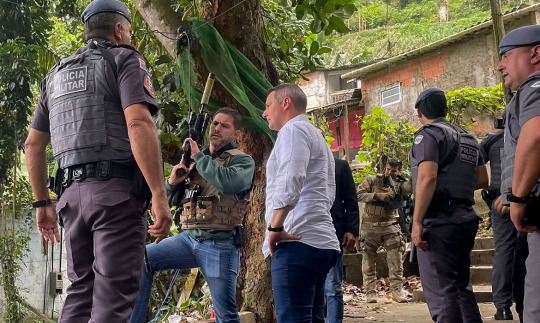
Following the death of a military policeman, allegedly at the hands of drug traffickers from Guarujá, São Paulo, Brazilian police began an operation in the area that has resulted in the deaths of 16 people as of August 2.
The operation has drawn criticism and human rights groups are accusing the police of excessive violence and abuse. São Paulo’s state government denies the accusations, and says the goal of the operation is to combat organized crime and drug trafficking.
The case began on July 27 when military police officer Patrick Bastos Reis, from the elite battalion of the São Paulo Military Police, was killed during a routine patrol in a poor community in Guarujá, a city with around 320,000 residents and that has a lot of drug dealing activity because it is close to a ship port.
Another officer was shot in the hand but survived. Police reacted immediately, launching what they called “Operation Shield,” a search bloc of police officers combing poor communities in the area in search of those involved in the policeman’s murder.
Continue reading.
#brazil#politics#brazilian politics#police brutality#public security#police#operation shield#mod nise da silveira#image description in alt
16 notes
·
View notes
Text
Stop feeding the algorithm
If you hesitate over a POST for just a spilt second longer, the algorithm picks up on that. Then they send you another post just like it.
Let's say a video about jealousy, if you do the same thing again --- hesitate just for a second, even if you eventually click thumbs down, it knows/thinks that's what you secretly want.
The algorithm has one job in mind keeping you engaged not making you a better person.
#internet security#internet culture#internet#privacy#google#operating systems#apps#technology#algorithmic bias#algorithmic stablecoin#i hate algorithms#tiktok algorithm#tumblr algorithm#generative#connect#app#influencer#thursdaythoughts#fridayfeeling
49 notes
·
View notes